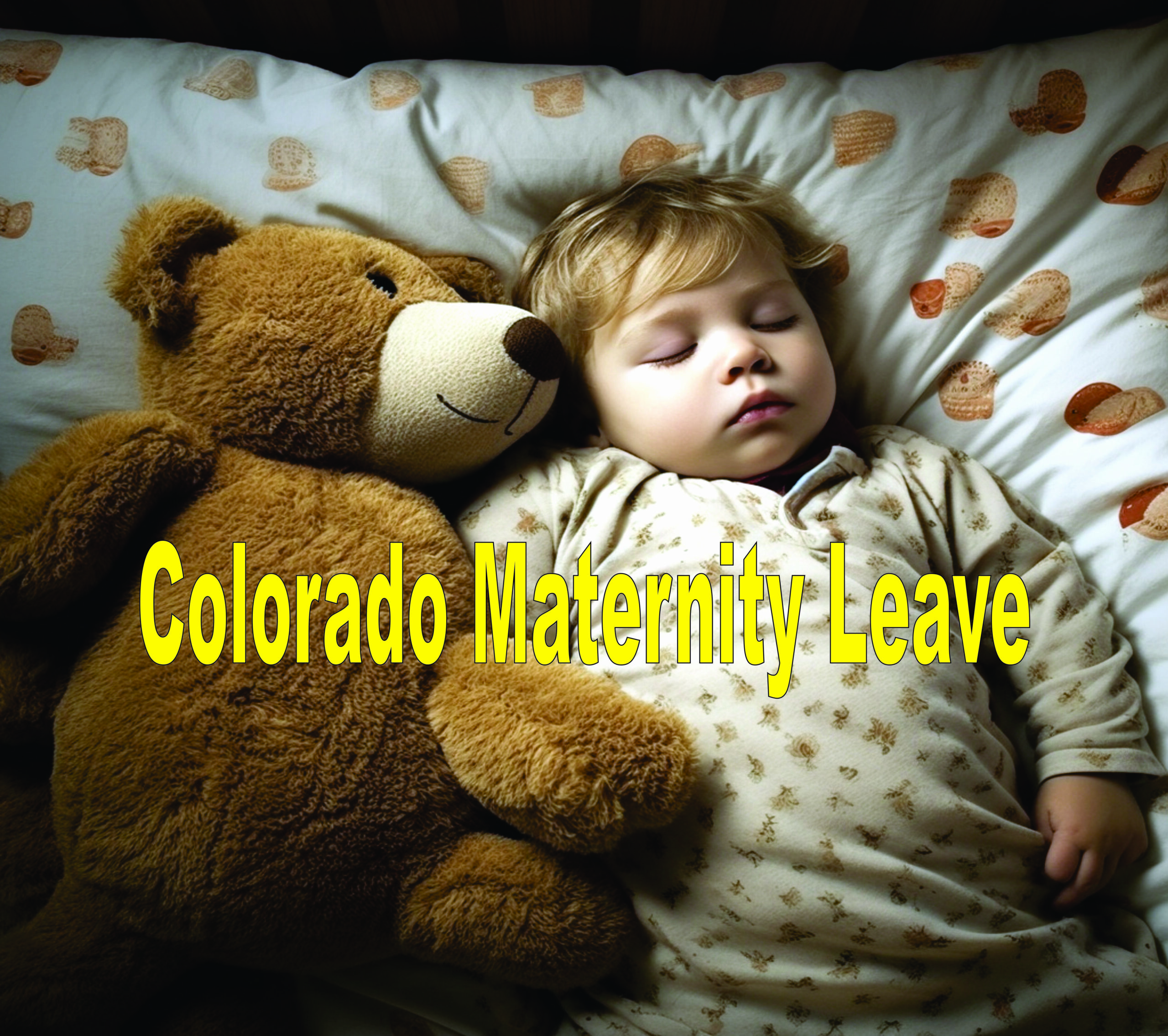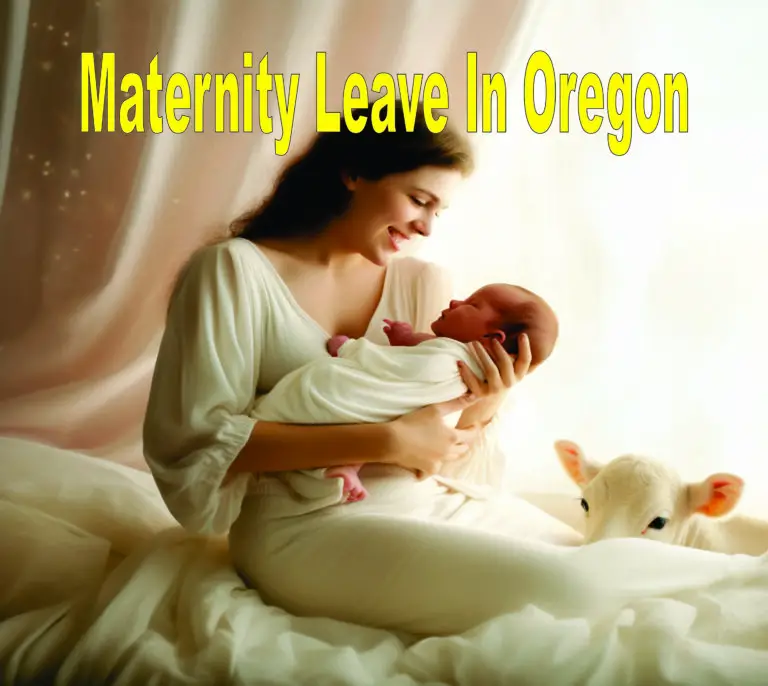Colorado Maternity Leave

Last Updated on May 23, 2024 by Kathy
On November 3, 2020, Colorado became the ninth state to adopt a paid family-leave law. It was also the first state to do so via a ballot measure and not through a state legislature.
The Colorado Paid Family and Medical Leave Insurance Act (FAMLI), provides 12 weeks of paid leave. Birth mothers with complications have the option to take an additional four weeks. Paid leave doesn’t only benefit parents of newborn babies. Employees can also use the benefit to care for their family members or for themselves.
This program is still in the early stages of its creation. Both employees and employers will need to make payroll contributions beginning January 1, 2023. The next year, benefits eligibility begins on January 1, 2024.
Like other programs, eligibility is determined by where the worker works, not their location. The employee must have worked in Colorado in the past year and earned at least $2,500. This can be combined with multiple employers.
Colorado Paid Family Leave/Maternity Leave:
This is all you need to know about Colorado’s Paid Family and Medical Leave Insurance Act. (FAMLI):
What is the maximum amount of paid maternity leaves I can take?
As someone who has personally benefited from Colorado’s new paid family and medical leave program, I can attest that it provides 12 weeks of valuable parental leave at a partial salary. This extended time allows parents to bond with their children during those critical early months. Additionally, I’d like to highlight that birth mothers facing pregnancy-related complications are eligible for an additional four weeks of paid parental leave, offering essential support during their recovery and postpartum period.
Having experienced Colorado’s previous state version of unpaid federal FMLA, I can attest that while it offered some benefits to domestic partners, it fell short of providing additional time off for families in need.

Who is eligible for paid family leave?
Colorado residents who have earned at least $2,500 the year before are eligible for paid family leave. Keep in mind that federal employees are not eligible, but they are covered by all state-paid leave policies. These details are still being worked through during implementation. Local municipalities may also opt out of the benefit for their employees.
You can earn the $2,500 required wage through multiple jobs with different durations. This is in contrast to other paid leave laws such as FMLA which require that you work for a specific duration at one job in order to be eligible.
What amount will I get paid?
Workers with the lowest income, who earn less than the average weekly salary (AWW), will be paid 90% of their wages.
This is illustrated using 2021 numbers. Those earning less than $590/week (half the state’s average weekly wage) will receive 90 percent of their income. Those earning more would have their income replaced by a sliding scale.
This program has a sliding scale that allows workers to receive 90% of their weekly average wage, up to a maximum of 50% of the state’s average weekly wage (currently $590/week). Workers earning more than that amount will receive 50% of the average weekly wage, until they reach the $1,100/week cap. The state’s average weekly wages will affect the maximum benefit. This will change each year.
Can I use my paid family leave for another purpose besides a newborn baby?
Yes. The 12 weeks of paid family time are available to help with illness, surgery, treatment, and care for family members.
As someone who deeply understands the provisions of Colorado’s Paid Family Leave law, it’s important to highlight that the Act also extends up to 12 weeks of paid leave to support survivors of domestic violence or sexual assault, offering them crucial time and resources to heal and rebuild their lives.
Do I need to use all my leave at once?
No, you do not. The leave is available for up to 12 months for a foster child, new baby, or adoption.
Paid leave benefits can be provided for time taken consecutively over a period of time or for a short time in some circumstances.
What if I foster, adopt, or use a surrogate? Are those qualifying events?
Under Colorado Law, fostering a child, adopting a child, or having a child through surrogacy is eligible for the full 12 weeks of paid leave.
Who is included in taking time off for family members?
Colorado allows anyone to be considered family. This includes anyone who is a member of your family or has a significant personal or family relationship with the employee. The expanded definition of family has become more apparent with the pandemic. “A lot of biological families are split right now for a variety of reasons so who we can turn to for help is our network of loved ones,” Make said.
How is the benefit paid for?
Colorado’s paid leave benefit is funded by both employee and employer contributions.
As someone familiar with the intricacies of Colorado’s Paid Family Leave funding, I can confirm that both employers and employees will contribute 0.45% (0.90% in total) of employee wages starting January 1, 2023. The state also retains the flexibility to adjust premiums up to 1.2% after the initial two-year period. It’s important to understand that the program follows a shared cost model, with employers and workers equally contributing. However, employers have the option to go above and beyond to provide further financial support if they choose to.
Can my employer opt out of the program?
Employers with less than 10 employees do not have to pay the employer half of the premium. However, employees who are eligible are still eligible and still contribute 0.45 percent of payroll tax.
Employers of all sizes can opt out of the program if they offer a private program comparable or better, which is regulated and authorized in the state.
Panelli stated that an opt-out clause in similar states is usually for a small number of employers. These are often larger corporations with large employee numbers that have already implemented these programs. “Most businesses find the state social insurance model cheaper and more convenient.”
If my company pays for some portion of my leave, can the state law cover the rest up to 100 percent of my salary?
Employers will always be able top-off wages and there are no restrictions on how you can coordinate your leave with your employer to reach 100 percent wages.
Is the leave pay taxed?
I can confirm that Colorado’s family leave benefit is not subject to state taxes, providing some financial relief for families during their time of need. However, it’s crucial to be aware that federal taxes may still apply to state-paid leave benefits, and it’s advisable to consult with a tax expert for a comprehensive understanding.
What do I have to do to get the money? How am I paid?
Colorado has plenty of time to establish their benefits system for family leave paid by the state, even though benefits will not start until 2024. The details of how claims will be submitted are yet to be revealed.

Are there any monetary caps on the benefit annually or during one’s lifetime?
There is no lifetime or annual cap. The reimbursement benefits are limited to $1,100/week. This is 90 percent of the average weekly wage in the state. I want to emphasize that the benefit cap of $1,100/week will adjust according to changes in the state’s Average Weekly Wage (AWW). This dynamic feature ensures that the program remains responsive to economic shifts, providing a fair and proportionate level of support to beneficiaries as the AWW fluctuates.
Do I still receive my benefits and job protection while I’m out?
Similar to federal FMLA, Colorado’s paid leave benefits offer job protection and allow employees to retain their benefits, as long as they are employed by the same employer for at least 180 days.
“Everyone can get the benefit starting from day one. You can apply for the benefit if you are working, and something happens. Panelli said that job protection starts after 180 days. People who have multiple jobs are not eligible for job protection. The job protection applies only to the last 180 days of employment.
What about self-employed and freelancers, do they qualify for paid leave?
As someone who has been part of the Colorado Paid Family and Medical Leave program for several years, I can confirm that the benefit is accessible to those who have been enrolled for at least three years. It’s essential to emphasize that individuals must consistently contribute to the system during this period to qualify for the benefits.
How has COVID-19 changed anything on the Colorado Paid Leave plan?
Although COVID-19 does not anticipate to change any timelines for Colorado’s paid family or medical leave, COVID-19 raised concerns about the caregiving crisis in the country and was kept in mind when the ballot initiative in November 2020 was passed.
The policy was a sign of how passionate people were about it. As someone who has been actively involved in advocating for improved family leave policies, I can empathize with the challenges faced during the implementation of the program, making it difficult for some individuals to qualify during its initial stages.
Where do I go if I have more questions?
As someone who has navigated the Colorado Paid Family Leave system firsthand, I understand that finding comprehensive information about the program can be challenging. While there isn’t a dedicated Colorado website yet, you can reach out to me directly through the 9-5 Colorado website for any questions or clarifications you may need.






